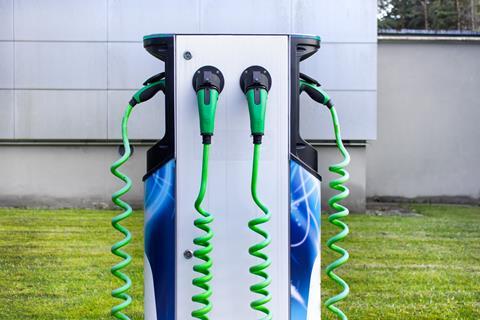Industrials were the star performer in 2020 as Covid-19 not only fast forwarded the growth in online retail, but also prompted manufacturers and retailers to review their supply chains and hold extra stock of key items.

Take-up of distribution warehouses hit a new record last year and we also saw an increase in new development, including several speculative schemes.
The demand for large warehouse space is expected to continue throughout the next year, as e-commerce continues to thrive and protectionism resulting from Brexit-related supply chain issues means businesses will still look to hold on to more stock.
However, one of the main challenges now facing the industrial and logistics sector is how to cut air pollution by streamlining deliveries and switching to electric or gas-powered vehicles.
As a result, environmental, social and governance (ESG) and sustainability credentials are now a major focus for occupiers, who are increasingly looking for facilities which ideally include amenities such as electric vehicle charging points and energy efficient, zero-carbon buildings.

Our portfolios include several multi-let industrial estates in and around major UK cities, including Woking Business Park and Acorn Industrial Park in the South East and Hartlebury Trading Estate in the West Midlands, which are areas set to become even more popular as occupiers look to reduce travel distances during the distribution process.
We believe that more industrial landlords will look to enhance their assets so that they cater for these requirements and we will begin to see more facilities which are located near major cities, powered by green energy, and have more amenities for occupiers.
Sustainability is an integral element of our investment process and we support best practice investment management. In our view, ESG supports investment returns for the long term as it results in future-proof and lower cost buildings for tenants which, in turn, results in maximum levels of tenant interest, longer term leases and increased rents. It is also a crucial strategy in terms of retention of existing tenants in an increasingly competitive sector.
Therefore, we not only want to invest in environmentally friendly industrial assets across the UK, but also develop our existing industrial portfolio so that it meets the changing needs of occupiers.
This will form part of our ongoing wider ESG commitments with Schroders also announcing its pathway to becoming a net zero carbon business.
Rob Cosslett is UK real estate acting fund manager at Schroders
Industrial and logistics sector abuzz with activity
- 1
- 2
- 3
- 4
 Currently reading
Currently readingIndustrial must be sustainable
- 5
- 6
- 7
- 8
- 9
- 10
- 11








































No comments yet